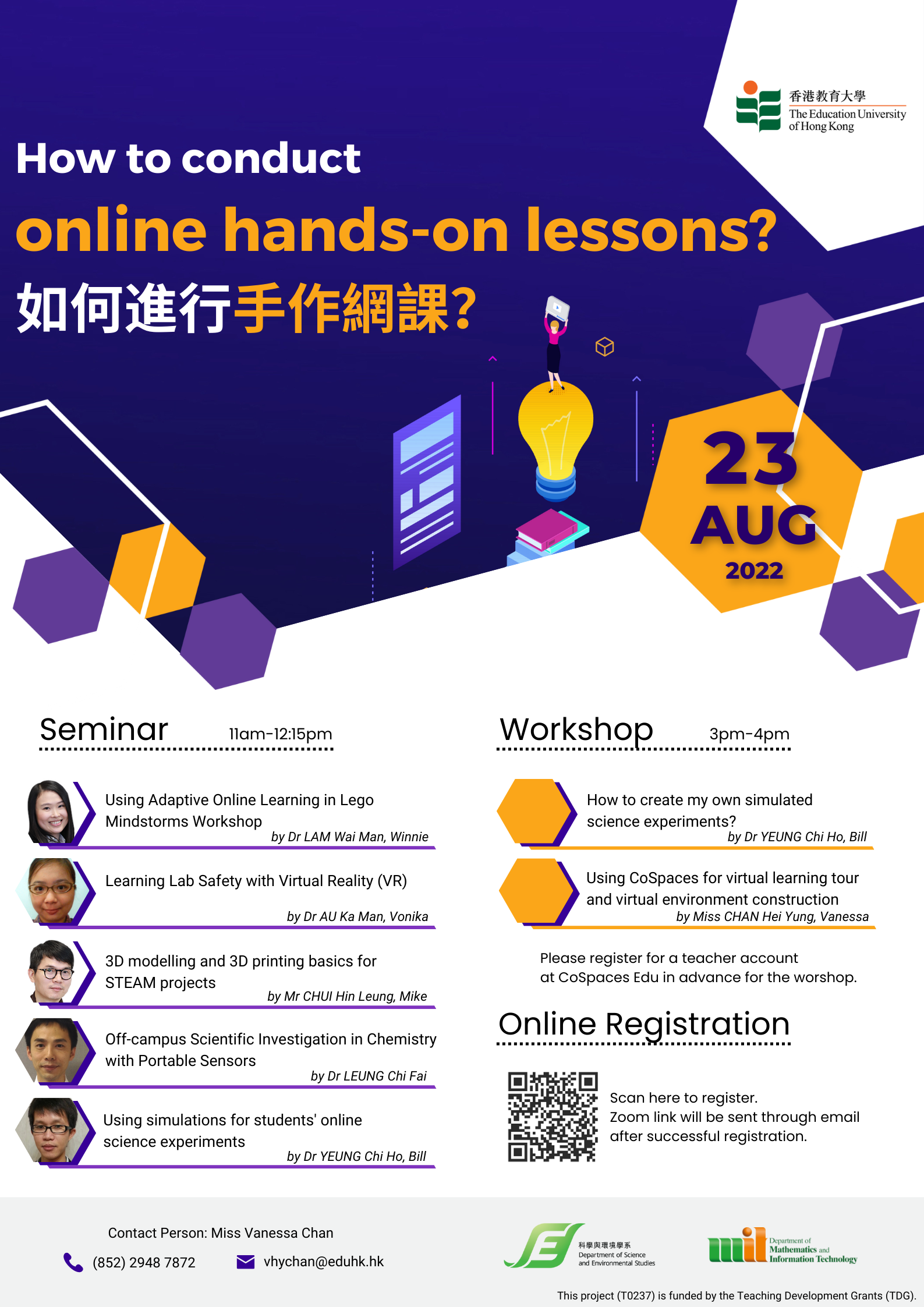|
Self-paced Response-adaptive Instructional Design for Non face-to-face Learning and Teaching with Hands-on Components

Abstract
Due to the outbreak of COVID-19, all courses regardless of their nature at the EdUHK are delivered online, and courses involving hands-on components such as science experiments, STEM activities, handcraft and coding face tremendous challenges. Contents in these courses have to be adjusted to comply with the online mode, and hands-on components may have to be postponed or even cancelled. These suggest that the non-face-to-face cousrse delivery mode has significantly larger impact on students' learning in courses with hands-on components compared to other courses.
In the proposed project, we will identify platforms and mechanism and establish a framework for non-face-to-face instructional design with hands-on components. Instead of showing the hands-on components sequentially, our proposed instruction design will react to learners' responses with suitable videos or learning materials according to their learning pace or queries, constituting an independent and adaptive learning path for each individual learner. Professional development on this innovative instructional design will be provided for course instructors at the EdUHK, leading to positive impact on students learning hands-on components online. In addition to future non-face-to-face teaching period, our findings will also be relevant to the flipped-classroom approaches, self-directed online learning, and online offering of programmes, enhancing and diversifying learning and teaching.
Results
In the first half of the project, we have attempted to achieve the goal of self-paced response-adaptive learning and teaching of hands-on components using three different approaches, which include (1) virtual reality (VR) laboratories where users can freely explore and go to different section of the lab and interact with the lab equipment using VR, (2) portable experimental sensors distributed to students together with videos filled with clear instructions, for students to conduct take-home advanced science experiment, (3) guiding videos on hands-on tasks which allow users to jump, side-track of backtrack to different sections of the video according to their progress and problems encountered. A questionnaire has been designed for measuring students' perception of the difficulties they encountered during online learning of hands-on components. These approaches have been or will be tested in course and their effectiveness will be measured by the questionnaire.
Impact
The project has explored innovative new approaches to guide students through hands-on components online. As the development of COVID-19 remains uncertain despite the presence of vaccines, it is also uncertain regarding the full resumption of face-to-face lessons, since students are free to choose to study online in this period. As a result, it becoes more essential to have practical approaches to guide students through hands-on components including science experiments, STEM, coding and handcraft acitvities in online courses. The new approaches developed in the project which aim at self-paced response-adaptive online learning of hands-on components will set up pioneer frameworks to achieve the goal and solve problems faced by many instructors at EdUHK, other universities or even primary or secondary schools and thus has an extensive impact on online learning. |